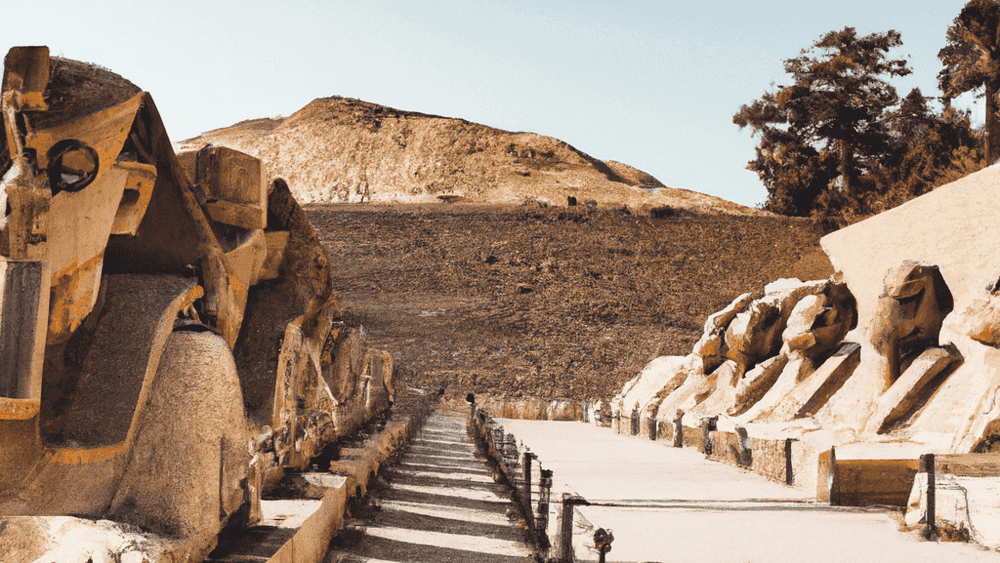# How Cultural Sensitivity Enhances the Travel Experience in Egypt
### Introduction
Traveling to Egypt is more than just visiting the Great Pyramids or cruising the Nile; it’s about immersing oneself in a rich tapestry of history, culture, and community. As travel agents and tour operators, the ability to foster cultural sensitivity is paramount in enhancing the travel experience for clients. By building trust and engaging with local communities, tourism can evolve from a simple transaction into a heartfelt exchange that benefits both visitors and locals alike.
In this blog post, we will explore why cultural sensitivity matters in Egypt, how it enhances the travel experience, and practical tips for travel professionals to integrate these principles into their offerings.
### The Importance of Cultural Sensitivity
Cultural sensitivity involves understanding and respecting the customs, values, and practices of different communities. In Egypt, this is particularly significant, given the country’s diverse population and the multitude of traditions that vary from one region to another. A culturally sensitive approach ensures that visitors not only appreciate Egypt’s historical landmarks but also connect authentically with its people.
**Why is Cultural Sensitivity Essential in Travel?**
**1. Building Trust:** When travelers demonstrate respect for local customs, it fosters a sense of trust and goodwill. This is crucial in a country like Egypt, where hospitality is a cornerstone of the culture. Engaging with locals who feel valued can lead to richer, more memorable experiences.
**2. Authentic Experiences:** Travelers increasingly seek authenticity in their journeys. By incorporating cultural sensitivity, travel agents can curate itineraries that allow clients to interact meaningfully with local communities—be it through culinary experiences, traditional craft workshops, or community-led tours.
**3. Sustainable Tourism:** Prioritizing cultural sensitivity contributes to sustainable tourism practices. It minimizes negative impacts on local cultures and ensures that tourism benefits communities economically and socially. This is vital for preserving Egypt’s cultural heritage while supporting local livelihoods.
### Engaging with Local Communities
To truly enhance the travel experience in Egypt, travel professionals should focus on community engagement. Here are some strategies to consider:
**1. Collaborate with Local Guides:** Partnering with local guides who are knowledgeable about their culture helps travelers gain insights that might not be available through conventional tours. These guides can share stories, traditions, and customs that enrich the experience.
**2. Promote Local Businesses:** Encourage travelers to support local artisans, markets, and restaurants. This not only contributes to the local economy but also provides firsthand experiences that reflect the true essence of Egyptian culture.
**3. Encourage Cultural Exchange:** Design activities that promote cultural exchange, such as cooking classes, traditional music sessions, or language workshops. These interactions foster connections between visitors and locals, leading to meaningful memories.
### Addressing Common Questions
**Q1: How can travel agents educate their clients about cultural norms before visiting Egypt?**
Educating clients about cultural norms is essential in setting expectations. Travel agents can provide resources like brochures, online articles, or dedicated pre-trip webinars. Highlighting key customs—such as dress codes for religious sites, dining etiquette, and greetings—will empower travelers to engage respectfully with local communities.
**Q2: What are some cultural practices travelers should be aware of when visiting Egypt?**
Travelers should be aware of practices such as dressing modestly when visiting mosques or rural areas, asking for permission before taking photos of people, and understanding the significance of gestures such as handshakes. Simple gestures of respect, like greeting locals in Arabic (“As-salamu alaykum”), can significantly enhance their interactions.
**Q3: How does cultural sensitivity impact the overall perception of Egypt as a travel destination?**
Cultural sensitivity directly affects the perception of Egypt as a welcoming and enriching travel destination. When visitors experience genuine interactions with locals, they are more likely to share positive reviews, recommend Egypt to others, and return for future visits. This word-of-mouth marketing is invaluable in a competitive tourism landscape.
### Conclusion
In an era where travelers are increasingly seeking authentic experiences, cultural sensitivity stands as a vital pillar in enhancing the travel experience in Egypt. As travel agents and tour operators, you have the unique opportunity to build bridges between cultures, fostering trust and engagement with local communities. By prioritizing cultural sensitivity, you not only create unforgettable journeys for your clients but also contribute to the sustainable development of Egypt’s tourism sector.
At Discovery Tours, we believe that every trip should be a respectful exchange that enriches both visitors and hosts. Together, let’s pave the way for a future where travel is not just about seeing new places, but about understanding and connecting with the rich cultures that make our world beautiful. Embrace cultural sensitivity and watch as it transforms the way your clients experience the wonders of Egypt.





